2022 Week 1: Youth and Education
Cionne Gates | By Peaceful Means
During the first week, my supervisor notified me she had COVID, so I worked remotely on a couple of planning tasks for staff orientation next week. While preparing for the summer program to be in person, I wanted to get fully acquainted with the general population of youth I will be working with and where the facility will be held. During conversations with the fellow interns in my peer mentor group, we expressed our fear of Hopkins privilege interfering with building positive relationships with both staff and students alike. In order to make us feel more comfortable, we discussed multiple approaches on how we immerse ourselves in communities or identities we may not be particularly familiar with, and we started by understanding the geographics of each area. Most, if not all of our placements are situated on the White L, which means efficient transportation, variety of nutritious food options and overall better access to resources. While it may be relatively easy for us to get to our destination, children in Baltimore are inadequately supported by the transportation system as consequences of systemic discrimination through redlining, and this continues to enforce persisting educational inequities. Often times, it takes three or four different buses all within the span of five hours just to get school, but even so they are often exposed to varying levels of traumatic incidences because they are more frequent at bus intersections. Uniquely, this directly affects school absenteeism reports in Baltimore City Public Schools, and this prevents their academic success as a student all because of a transportation system that is failing them, both personally and academically. Despite the limited amount of interaction with the staff so far, I am immensely excited to work with a lively team dedicated to instructing positive role models that represent each part of our world. Given the limited capacities of schooling facilities, we are able to provide a safe space that fosters emotional growth and global insight on how to resolve conflicts through peaceful resolutions, so they are mentally equipped with navigating the injustices in our society themselves, no matter their age.
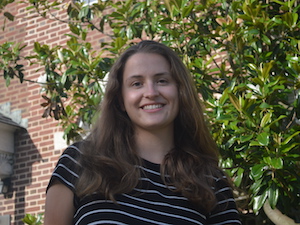 Hélène Girard | Village Learning Place
Hélène Girard | Village Learning Place
On Tuesday, I updated a spreadsheet that contained math and literacy scores from the fall and the spring of last year. The scores were in a very different distribution than what I remembered from my elementary school- to the point where I looked up the statistics for my school to check. My memory was correct, but my pride was mixed with my surprise that I didn’t see how unique my school was. I got to meet smart kids in my town from every kind of privilege and hardship, and we were all getting the best education a child could get in Louisiana. At the time, I took it for granted (as 11-year-olds can do so easily), but that experience really set me up for the kind of academic self-confidence that has brought me (along with many other factors) to this university and subsequently to this placement. As a child, knowing that I did well on a standardized test made me feel really good about myself- it meant my parents would be proud of me and I could be proud of myself. Looking at the scores I was inputting, I was worried for these kids- what would happen to them if they couldn’t work on their math and literacy scores, how would seeing those percentile rankings affect their self-esteem? It made me anxious that I might not be able to help or that I would ask too much of someone and end up alienating them even further. It also made me very passionate about trying, so that they could get a confidence boost like I had. At the end of the day, I’d like to think that my job is to help the kids feel good about themselves, and I think that happens by making them confident about trying their best, however that looks for them individually. Easy to say, harder to do. I think encouragement and pointing out what they already do well will be my strategy.
On a simpler note, I am really excited. We organized the library on Thursday, and seeing all the books and the funny characters, I am REALLY looking forward to the slightest opportunity I get to read to the younger kids- I pride myself on my ability to do the different voices for the different characters, and I’ll consider it a job well done if I can make anyone giggle (besides myself).
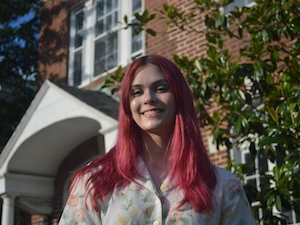 Helen Lacey | Dent Education
Helen Lacey | Dent Education
This week I became youth mental health first aid certified, sorted supplies, and attended a few meetings related to Dent. I wasn’t able to work full-time because the program hasn’t started yet, but the things that I did get to do this week helped me gain a deeper understanding of the organization. Two of the meetings I attended involved Dent’s onboarding of partner organizations for the program, so I watched the Dent program get explained to businesses that plan to partner with Dent this summer. The businesses will be working with small teams of students (“Denters”) and guiding them through creating a product for their business. I also received my site placements this week, and I believe I will be helping with some of these sorts of activities via Dent Education’s Denternship track. I also attended a strategic planning meeting, where Dent staff, coaches, and students gathered to discuss future plans for Dent Education. I was the only person at the meeting who had not worked with Dent during previous summers, so it was exciting to hear how passionate everyone was while sharing their thoughts on what they felt Dent does very well: building networks for students, creating safe spaces, encouraging creativity, and many others. The team discussed future plans for Dent as well, including things like expanding Dent Education to other cities outside of Baltimore and potentially creating a Dent “school.” Overall, I’m definitely leaving this week feeling more confident in my understanding of the Dent mission. I also feel much more well equipped to deal with any potential mental health concerns with my first aid certification. I’m excited to start onboarding next week and meet more of the Dent team!
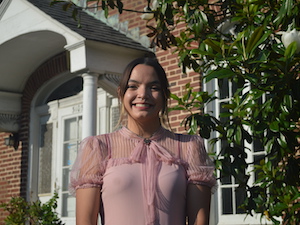 Mahalia Munalem | Hampden Family Center
Mahalia Munalem | Hampden Family Center
This week I had to unexpectedly shift to remote work because I tested positive for Covid and had to stay in isolation. Luckily, my main project facilitating summer enrichment programming for youth in the Hampden community does not begin until June 27th so I was not missing any time with the young people and there was preparatory work that I could be assigned. My supervisor was very understanding of the situation and encouraged me to prioritize my health and the safety of others. She even delivered at-home test kits to my residency as I required a negative test to return to in-person activities at the Hampden Family Center. Adjusting to working virtually when the original intent was to work entirely in-person was challenging, especially because I could not escape the home environment I was isolating in to have a change of scenery. Despite such difficulties, my advisor said she admired my work ethic and ability to stay engaged. We checked in for an hour each day on zoom where I got to learn more about our plans for programming, the center’s role within and relationship with the community, and the different individuals that worked at HFC. Since this was the first week of our internships, I initially did a lot of onboarding tasks. This included familiarizing myself with the communication systems we would be using, reviewing our CIIP goal sheet, and creating an account with the Maryland Out of School Time Network (MOST) so I could continue learning throughout this summer experience through online modules on Youth Development. My favorite and most flexible task that I was assigned this week was designing informational graphics that would be shared with the families participating in the summer enrichment program. The Hampden Family Center granted me access to Canva Pro where I was able to fully utilize the creative platform to create attention grabbing graphics that outlined an overview of the essential details of the program that they enrolled their youth in.
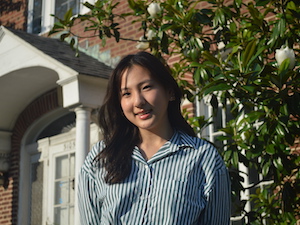 Sophia Park | Child First Authority at Calvin Rodwell Elementary/ Middle School
Sophia Park | Child First Authority at Calvin Rodwell Elementary/ Middle School
I don’t think I truly understood what a “community school” was until I started working this week. When my supervisor first informed me that Calvin M. Rodwell Elementary and Middle School is not like the typical elementary and middle schools, I assumed that she meant they had more after school programming with mental health focuses. I thought it would still be like the standard school where students come solely to learn and get an education. However, on my first day on the job, I quickly realized the significance of this community school. I helped organize a giveaway where we gave out leftover food items, clothing, toys and toiletries for free. Seeing these families so excited to take home these items, I realized how much of a relief this school provides these families. Furthermore, I also researched and created a local food pantry resource poster to be shared amongst the students and their families. I never realized how much work it is to find these food pantries, as many of the food pantries I called had incorrect info online or were not even offering services anymore. My supervisor mentioned how the school often creates these posters with various resources to be distributed, and it further shows that this school is such an integral part of the community. Shadowing my supervisor, I saw the impact she had within the school and beyond. She described herself as a community leader, and I truly saw the extent to which she had transformed her community. Growing up and attending Calvin M. Rodwell herself, she saw the need to have a local grocery store and led the charge to obtain one. She also helped paint the mural in front of the building across the street. Ms. Amanda is so incredibly passionate about her community and uplifting the members within this community. It made me think of how I can help make positive changes in my own community. Overall, this week made me realize how important a community school is and I am eager to get started on working with the summer programming at this school.
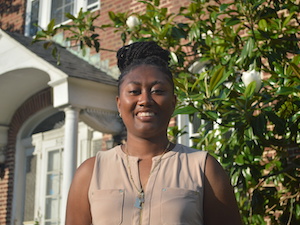 Abigail Quashie | St. Francis Neighborhood Center
Abigail Quashie | St. Francis Neighborhood Center
This first week of work was an adjustment for me. I have had to figure out how to balance my eighty-minute (back and forth) commute with my 7-hour workday and still make time for self-care, going to the gym, and especially cooking. On Tuesday, I had a particularly long evening planned ahead of me. I would leave work at 5, get back to my place around 5:45 and then head out to the gym at 6:45, workout for 1.5 hours, and then finally shower and cook dinner for the rest of the week. It seemed busy but doable until I remembered that I did not have any groceries to use for dinner. I had the bright idea to take a quick grocery trip immediately after work and then head home. During my lunch, I did a Google map search for the nearest grocery store. You can imagine how shocked I was to learn that the closest stores were back near campus. I felt inconvenienced and frustrated that I would have to push back my entire schedule to buy some groceries. Later that day, I had a conversation with somebody at the center that put it into perspective for me: the area that I am working in is one of the many areas in Baltimore experiencing food apartheid. For me, the grocery store situation was a minor inconvenience because I could slightly adjust my schedule to make a grocery run whenever. But for residents of the community, access to a variety of healthy food options is a major issue. Unfortunately, not everyone has an easy means of getting to a supermarket or grocery store, which is not a coincidence. I had never heard of supermarket redlining until this week, but it is a real phenomenon and negatively impacts whole communities of people who were not given a voice during the conversations of city planning and access. Officials and companies chose not to put those stores in certain neighborhoods, which in turn left room for convenience stores, liquor stores, and a myriad of resulting community health problems. That is why ending food apartheid is so pertinent. And there are plenty of organizations and community working at all angles to help. Especially those like SFNC, who do regular food and grocery distributions. The work never ends though, and there is no such thing as too much help, so I would encourage everyone to do more research and figure out in what many ways they can assist.
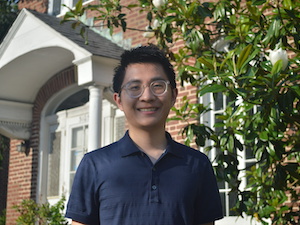 Ethan Wang | Code in the Schools
Ethan Wang | Code in the Schools
Overall, I felt like I did so much in Week 1. I jumped straight into training and meetings and tasks to prepare for the CodeWorks summer program, where Baltimore City residents get paid to learn tech skills, which is going to start in a few weeks! From learning on-the-spot for number crunching in Excel to using Canva to create a draft employee handbook, I learned how adaptable I am. I also enjoyed seeing the inner workings of a non-profit and how it functioned, with weekly check-in meetings and constant communication through Slack. I’m also amazed at how community organizations can work together in every step of the process in serving Baltimore. When we were rebooting computers, there would be some unfunctional ones. These unfunctional ones wouldn’t just be thrown in the trash, but donated to an organization that repairs them and sells them at a greatly reduced price to residents that need them. I’m also amazed that there are so many programs in YouthWorks, which is supported by the Mayor’s Office of Employment Development, that can provide amazing opportunities to youth in Baltimore. It is great to see the direct impact of government system support.
In our BITES session on Wednesday, we talked about food apartheids in Baltimore and how closely it correlates with the White L and the Black Butterfly. I am grateful to have learned so much information about this issue in Baltimore, especially about all the community organizations that are working to provide Baltimore residents access to healthy foods. I learned more about the multiple factors that should be improved, like the industrial control of the food systems in America, America’s high rate of food waste, and discriminatory reasons that accentuate food apartheids. I’ve definitely become a lot more conscious with how I treat the foods I like and the production behind them.
